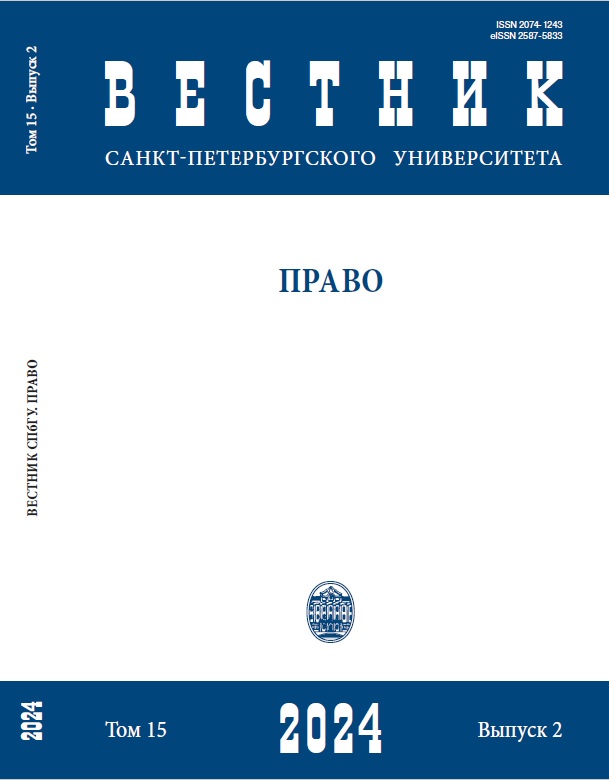Formation of identity and protection of the rights of a digital citizen in a digital society
DOI:
https://doi.org/10.21638/spbu14.2024.201Abstract
In the modern era, driven by the information revolution, an individual or individual citizen increasingly presents himself as a “digital person” or a “digital citizen”. The connotation and extension of the rights of an individual (citizen) are also undergoing a deep digital reconstruction. This is how “digital rights” appeared, and “puts on the agenda” the confirmation of identity and the protection of the rights of a digital citizen. It should be noted that digital survival has become the main attribute and the main mechanism of human life, and the problem of identity of a digital citizen arises in accordance with the requirements of the time. A digital citizen is a digital embodiment and digital expression of a natural citizen, carrying within himself the identity, logic of action, as well as the rights and responsibilities
of a citizen in digital public life. The imbalance between digital capabilities and technological
capabilities has led to the digital citizen facing the dilemma of mechanical isolation, which is especially manifested in the marginalization of the digital citizen in platform architecture, the isolation of the digital citizen from algorithmic decision — making, the objectification of the digital citizen in digital control, the disconnection of the digital citizen in technological capabilities and depersonalization of the digital citizen in technological rationality, etc. The
mechanical isolation of the digital citizen poses a serious challenge to the values of equality, freedom, fundamental rights of citizens, as well as democracy and the rule of law. In order to eliminate the mechanical isolation of the digital citizen, strengthen the legal protection
of the rights of the digital citizen and preserve the fairness of the digital society, it is necessary to adhere to the principle of the “human — centered” digital rule of law, carry out the legalization and confirmation of the identity of the digital citizen, as well as build a digital democratic mechanism of inclusivity and shared governance, increasing literacy and digital citizen qualifications.
Keywords:
digital rule of law, digital citizen, digital government, digital human right, digital identity, digital society, digitalization
Downloads
References
Downloads
Published
How to Cite
Issue
Section
License
Articles of "Vestnik of Saint Petersburg University. Law" are open access distributed under the terms of the License Agreement with Saint Petersburg State University, which permits to the authors unrestricted distribution and self-archiving free of charge.






